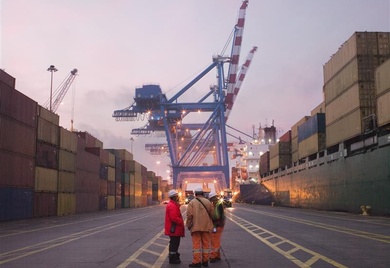
Four Areas Ports Can Work on to Successfully Navigate the Future
Integrating MSMEs, enhancing synergies, promoting environmental sustainability, and fostering women’s participation and leadership are crucial to ensuring ports in Latin America and the Caribbean's long-term growth, innovation, and contribution to economic diversification, thereby benefiting natural capital and local economies.

For Earth Day, Nature-Based Solutions in Private Sector Infrastructure Projects
Several studies have shown that Nature-Based Solutions in private sector projects provide meaningful societal benefits for climate and social resilience, as well as ecosystem health.

This is the Time to Push Social Infrastructure in Latin America and the Caribbean
Discussions about investment in transport infrastructure as a recipe to get out of the crisis have become a cliché. But there's not so much talk about investment in social infrastructure, focused on sectors such as health or education, which also creates large multiplier effects.